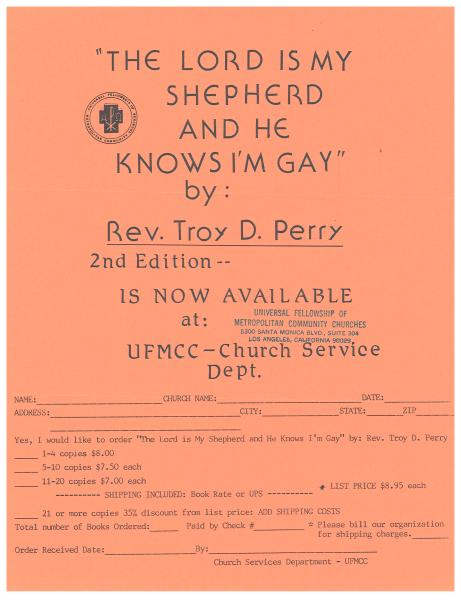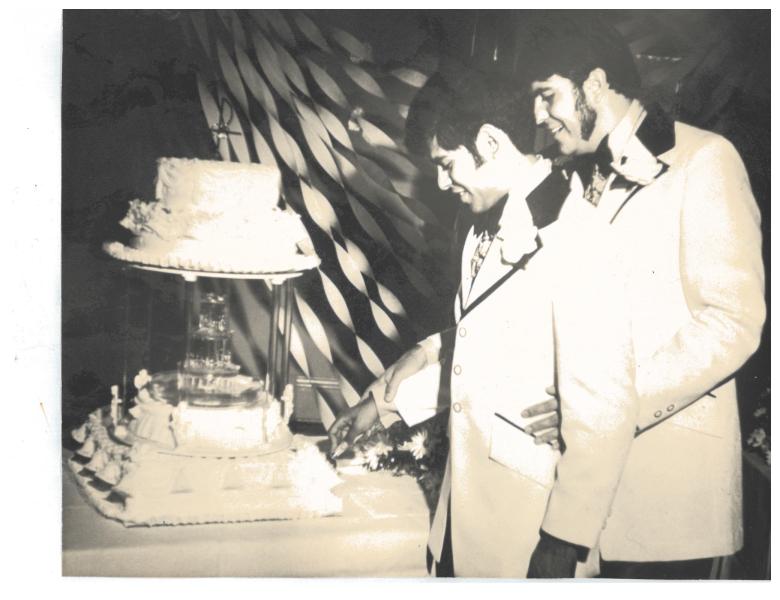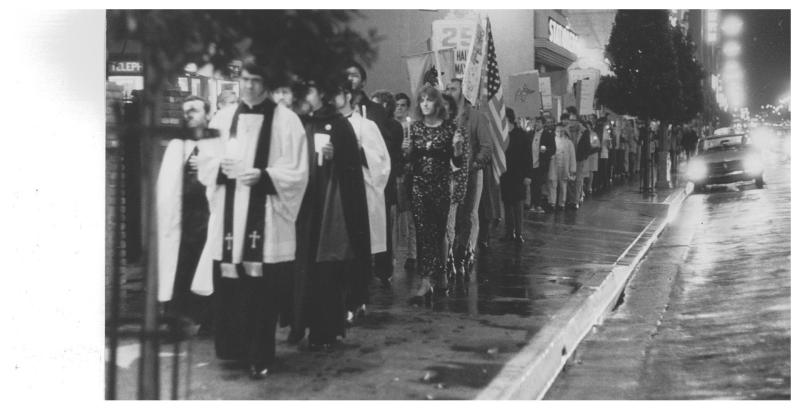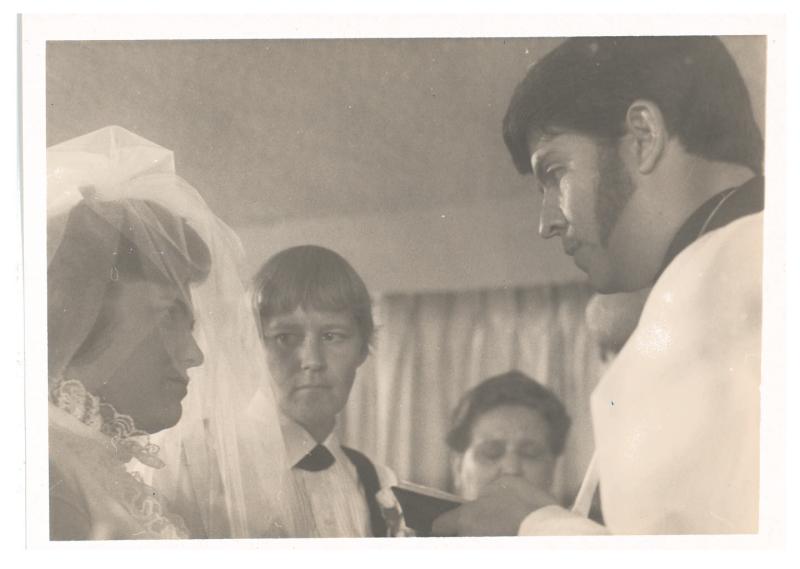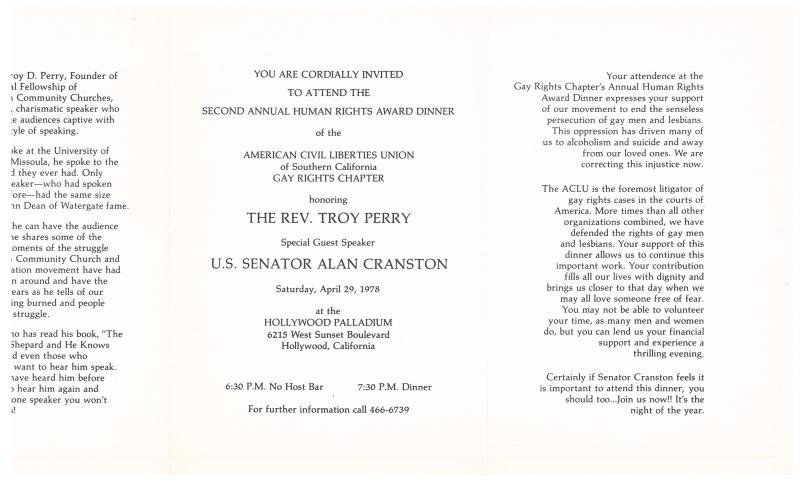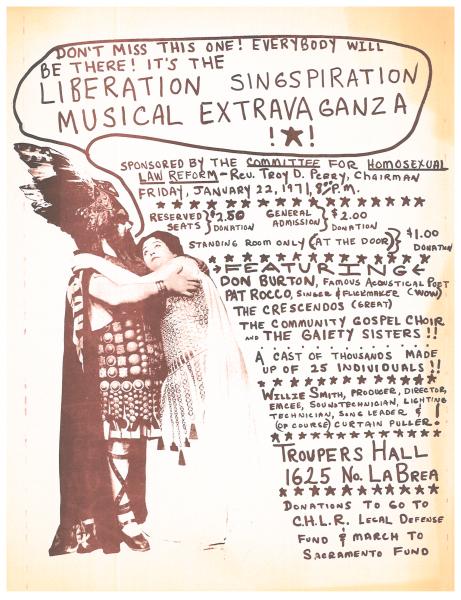The original service of the MCC occurred on October 6, 1968, in the living room of Perry’s California home, consisting of a 12-person congregation. In the early stages of the MCC, Perry solidified the method of worship by utilizing a mixture of Episcopal, Presbyterian, and Lutheran worship books alongside input from the congregation. Presently, the church has expanded to roughly 300 congregations and over 43,000 church followers. In addition to his efforts in founding the Metropolitan Community Church, Perry has also fought for equality for the LGBT movement in regards to marriage equality, worked in opposition to the Briggs Initiative, and has actively engaged with a variety of American presidents in the White House.
The Metropolitan Community Church (MCC) has remained a monumental institution for worship while simultaneously participating in human and civil rights movements. Notably, the MCC was recognized as the first religious institution to conduct same-gender marriage ceremonies in the year 1969. The mission of the MCC is rooted in addressing the societal obstacles that exist in the exterior “volatile, uncertain, and complex world” (Metropolitan Community Church). In addition, it gained status as the most extensive global organization aimed at educating the public on homosexuality and Christianity.
There are three central teaching points for the MCC, which include the Gospel of Salvation, the Gospel of Community, and the Doctrine of Christian Social Action. The Gospel of Salvation is the ideology that all believers of Jesus deserve the opportunity to experience eternal life. The Gospel of Community champions the idea that the MCC promotes a nurturing community for LGBT+ individuals, as many are forcibly ostracized from their families. Finally, the Doctrine of Christian Social Action argues that the congregation of the MCC is responsible for implementing action if a plausible homophobic situation erupts.
Before conducting the first MCC service, Perry released an advertisement in The Advocate, an LGBT magazine, which served as an effective way of spreading awareness and gaining supporters. Out of the 12 supporters present at the original church service, three individuals appeared due to the pamphlet’s advertisement. Reminiscing, Perry shared a personal account of the sound of hymnal signing in an interview, released in 2004: “We sounded a little thin and tinny, but the spirit was what counted.” Following the hymnal signing, the congregation in his living room listened to Perry’s sermon and discussion of the key mission of the church, as he proclaimed that the MCC was “not a gay church—we were a Christian church[,]” functioning as an “all-inclusive” institution (Metropolitan Community Church). After the sermon, the process of communion began, but only three members of the congregation wished to receive communion. Following the concluding prayer, Perry invited the congregation to remain in his home for a reception.
Following the first sermon on October of 1968, the MCC’s awareness grew substantially. Just a little over two months following the original sermon, the MCC had to relocate its services as its congregation size was too large to accommodate in Perry’s residence. Around this time period, the size of the congregation was a mass of 36 individuals. As the MCC continued to expand and grow, the necessity for additional pastors to oversee these church locations. In an interview, entitled A Woman at War, published in 1992, Perry shares his initial moments when he met Dusty Pruitt and her prominent role in the MCC. Dusty Pruitt was a key female, lesbian preacher for the MCC. Prior to serving as the pastor of the Long Beach branch of the MCC, Pruitt served in the military: the military was one sphere for women to deviate from their traditional societal roles. As a result, Pruitt surpassed the “glass ceiling” for the traditional female professions at the time. She was hand chosen to serve as the pastor of the Long Beach MCC; during her time in her position of authority, she expanded the program due to the fact that the “congregation owned a small piece of property on another street” (Perry).
Perry also served as an activist towards the civil rights of the LGBT+ community. First, Perry served as the chairman for the Committee for Homosexual Law Reform, which sponsored a Liberation Singspiration Musical Extravaganza in 1971 and conducted a march to Sacramento to protest discriminatory laws in the state of California. Perry also released his autobiography called The Lord is My Shepherd and He Knows I’m Gay in 1987. In addition to his autobiography, Perry shared his progressive desire for equality in News Release: For Immediate Release, published on March 5, 1976.
Perry was honored at the Second Annual Human Rights Award Dinner of the American Civil Liberties Union of Southern California's Gay Chapter. According to the pamphlet circulated at this particular event, Perry was recognized as a “dynamic, charismatic speaker” who proclaimed, “No longer will we remain second-class citizens, disfranchised by antiquated laws.”
